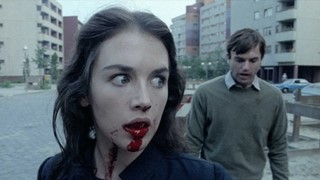From David Cronenberg’s Crash to Michael Haneke’s Funny Games, here are six of the best films screening as part of the BFI’s Discomfort Movies season this July
If “comfort movies” are those beloved, feel-good personal favourites to cuddle up to in a blanket when suffering from the blues, then the BFI’s new season on subversive “discomfort movies” celebrates cult classics that have exactly the opposite effect.
Throughout July, the south London institution seeks to make skin crawl with psychologically disturbing, discomfiting, and viscerally unsettling works designed to leave audiences shocked and unbalanced. From David Lynch’s lucid nightmare Eraserhead to Takashi Miike’s subverted romantic drama Audition, and even contemporary French body horror in the form of 2021 Cannes Palme d’Or winner Titane, the season points to works that invoke uneasy self-reflection, nuanced psycho-analysis, and even protest and despair.
Find a selection of AnOther’s favourites from the programming below, and catch them on the big screen in the weeks ahead at BFI Southbank.
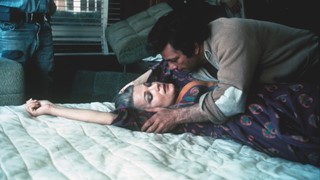
A Woman Under the Influence (John Cassavetes, 1974)
Screening Sunday 7 July & Sunday 28 July at BFI Southbank
“She’s not crazy, she’s unusual,” says blue-collar worker Nick Longhetti (Peter Falk) of his quirky, paisley-dress-loving wife Mabel (Gena Rowlands) as he’s called out to attend to a broken water main one night in suburban Los Angeles. When the job is done, Nick and his labour crew head home for a meal with the woman in question – who has just woken up after a chaotic night of hard drinking and borderline sexual assault. Over plates of spaghetti, her odd behaviour lingers – and as this uncompromising domestic drama unfolds, it becomes clear that Mabel may be suffering from a serious mental episode.
A creative high-point from independent filmmaker John Cassavetes – whose verité style and challenging depictions of emotionally vulnerable characters would inspire arthouse filmmakers as diverse as the Safdie brothers and Ryusuke Hamaguchi in later years – A Woman Under the Influence excels in part thanks to its uncomfortable and naturalistic long-takes, which give the actors space to seize their roles by the horns. Rowlands’ heart-wrenching portrayal of a troubled woman unable to get the support she needs from her family has a remarkable gravitas, and she was subsequently nominated for an Oscar for her performance. Cassavetes – her husband – meanwhile, competed for Best Director.
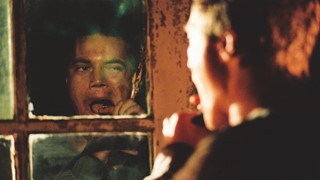
Bug (William Friedkin, 2006)
Screening Monday 8 July & Thursday 25 July at BFI Southbank
This low-budget chamber drama from the director of The Exorcist and The French Connection is an overlooked gem of his lofty, decades-spanning career. Adapted from a 1996 play by Tracy Letts, it depicts an unlikely relationship that develops between alcoholic bar hostess Agnes (Ashley Judd) and paranoid schizophrenic army veteran Peter Evans (Michael Shannon) – the latter of whom is convinced that the remote, neon-lit ‘Rustic Motel’ room they share has become infested with invisible blood-sucking aphids.
Friedkin’s tight direction, evocative sound design, and some particularly vivid sets from Franco-Giacomo Carbone (who elsewhere worked on sleazy horror films Hostel and Cabin Fever) are the secret to ensuring that this single-location psychological sensation is utterly immersive from start to finish. But it’s Judd and Shannon’s powerhouse performances that really steal the show here, with famed critic Roger Ebert commending their “manic intensity”, which is “frightening not just in itself but because you fear for the actors.” It bagged a FIPRESCI Prize at Cannes as a result, with Judd also nominated for a Saturn Award for Best Actress.
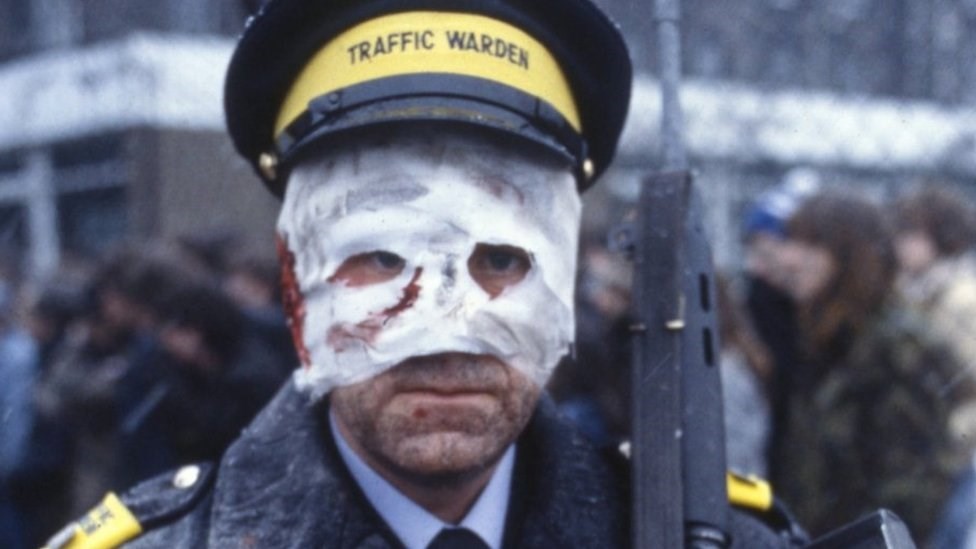
Threads (Mick Jackson, 1984)
Screening Thursday 11 July at BFI Southbank
There’s a strong case for this micro-budget, BBC-commissioned television movie being the most harrowing film ever released. Built around newsreel-like stock footage and jarring typewriter inter-titles, this realistic docu-drama depicts the devastating aftermath of a nuclear holocaust at the height of Cold War tensions – flipping the switch roughly one-third of the way through when the first warhead is detonated above the North Sea, instantly killing tens of millions of Britons. Further attacks raze industrial Sheffield to the ground, with survivors decimated by radiation poisoning, starvation, and savagery in a graphic and horrifying depiction of nuclear winter.
Penned by Kes author Barry Hines and produced for just £400,000 (a bulk of the actors were amateurs responding to a casting call advertised in The Star), it would eventually receive seven Bafta nominations after scarring a generation of innocent telly-watchers tuning in to watch it on the Beeb on a Sunday night in 1984. Contemporary revelations like HBO’s Chernobyl and Oscar-winning Oppenheimer pale in comparison to Threads’ disturbing warning of the dangers of nuclear war – and as such, this nightmarish classic remains the subject of much discussion even today.
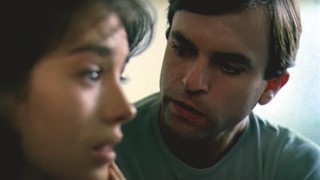
Possession (Andrzej Żuławski, 1981)
Screening Monday 15 July at BFI Southbank
Featuring disorientating camerawork, doppelgangers, and a few sickly glimpses of a squirming, tentacled monster, Possession mines the depths of a personal depression suffered by divorcee director Andrzej Żuławski to depict the catastrophic decline of a marriage in stark, grey West Berlin.
Two of the most maximally unhinged acting performances ever seen in European cinema offer a hellish quality to proceedings, with Sam Neill and Isabelle Adjani’s aggravated portrayal of psychological collapse outshining even the revolting craftsmanship of legendary creature effects designer Carlo Rambaldi (a three-time Oscar-winner for his work on King Kong, Alien and ET). The former actor would describe the film as “the most extreme I’ve ever made” in 2021, while Adjani – who won Best Actress at Cannes for her performance – was so badly traumatised by the emotional toll that she reportedly attempted to slit her wrists after filming concluded.
Her convulsive performance during one famous, subway-set sequence is absolutely jaw-dropping. Though few Britons saw it at the time: Possession was deemed potentially harmful to society and was duly banned in the UK at the height of “video nasty” hysteria.
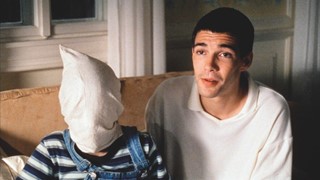
Funny Games (Michael Haneke, 1997)
Screening Monday 15 July & Saturday 27 July at BFI Southbank
A family vacation to an idyllic lakeside retreat immediately takes a turn when two strangers start displaying odd behaviour. Why are they both wearing white gloves? Why do their names keep changing? And, most importantly, why won’t they leave? These are the anxious opening moments of Michael Haneke’s profoundly grim home invasion drama Funny Games – which wastes no time in escalating tensions as the Schober family finds themselves in a bleak situation thereafter.
Quietly intense performances (by both the sadistic antagonists and the desperate victims) are captured in heart-racing long takes in this Austrian arthouse landmark – instilling Funny Games with a sense of utter desperation that makes for gripping viewing. Several genius fourth-wall-breaking moments, meanwhile, serve to confront the viewer on our voyeuristic tendencies and assumed complicity with the hopeless drama that unfolds – and it is this that truly marks the Cannes Palme d’Or nominee out as something special.
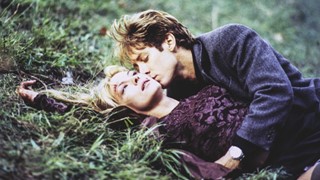
Crash (David Cronenberg, 1996)
Screening as a double-bill with Titane (Julia Ducournau, 2021) – Saturday 20 July at BFI Southbank
Canadian body horror icon David Cronenberg (who returned to Cannes this year to compete for the top prize with The Shrouds) had already built a reputation for visceral cinema off the back of gory classics like Scanners, Videodrome and The Fly come the 90s. But Crash, his psycho-sexual JG Ballard adaption, which effectively opens with a graphic head-on collision between two vehicles on a highway, would prove to be the most controversial of his career after a hysterical tabloid campaign led by The Evening Standard (who called it “a movie beyond the bounds of depravity”) attempted to ban it in the UK.
The film touched a nerve because of its discomfiting themes: Crash concerns the lives of a small group of urbanites living near Toronto’s colossal Highway 401 interchange who derive sexual pleasure from car crashes. Ripe with bumper-ramming innuendo, homoerotic intercourse, and the fetishisation of titanium leg pins and scars in carnal sex scenes, it was reportedly met with disdain by 1996 Cannes Jury President Francis Ford Coppola. The Godfather director reluctantly announced it as the winner of a Special Jury Prize “for originality, for daring and for audacity” that year at the behest of fellow jurors but apparently refused to present the award to Cronenberg personally.
Contrary to Coppola’s distaste, filmmaking heavyweights like Bernardo Bertolucci and Martin Scorsese have been vociferous with their praise – and off the back of a remarkable restoration in 2020, it’s easy to understand why. Peter Suschitzky’s evocative, hypnotic cinematography – which equates glinting steel car chassis’ with moist, naked flesh; and neutralises natural greens in favour of greying concrete and red-blue lighting – imbues the film with a dark, dystopian quality. Howard Shore’s eerie, chiming guitar score, meanwhile, is similarly unnerving – expertly coding the violent metallic textures on-screen into a cold, creaking audio masterwork.
Discomfort Movies is on at BFI Southbank in London from July 1-31.
